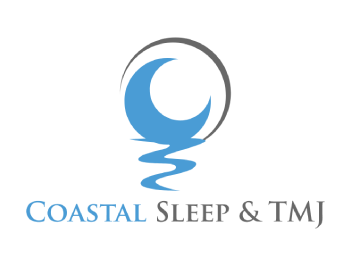Have you been waking up feeling tired, with a headache and a sore jaw? You may be suffering from TMJ disorder and sleep apnea. While these two conditions may seem completely different, they are actually related. In fact, they can significantly impair your overall sleep quality and health. If you think you may have either of these conditions, it is important to talk to your dentist as soon as possible.

TMJ Disorder
TMJ stands for temporomandibular joint, which connects the jawbone to the skull. When there is pain or dysfunction in the jaw joint, dentists call this a TMJ disorder. TMJ disorder symptoms can include pain or tenderness in the jaw, difficulty chewing, and a popping or clicking sound when opening or closing the mouth.
Sleep Apnea
Sleep apnea is a sleep disorder characterized by pauses in breathing or shallow breaths during sleep. These pauses can last from a few seconds to several minutes and occur multiple times throughout the night. The most common type of sleep apnea is obstructive sleep apnea, which occurs when the muscles in the back of the throat fail to keep the airway open during sleep.
The Connection between TMJ and Sleep Apnea
TMJ disorder and sleep apnea are connected because they involve the mouth and throat muscles and soft tissues. When the jaw is misaligned or the muscles are tense, it can narrow the airway, increasing the risk of sleep apnea. Conversely, the pauses in breathing that occur during sleep apnea can cause the muscles in the mouth and throat to tense up, leading to TMJ disorder.
Health Risks of TMJ and Sleep Apnea
TMJ disorder and sleep apnea can seriously affect your overall health. TMJ disorder can lead to chronic pain and discomfort in the jaw, neck, and shoulders, making it difficult to eat, speak, or even open your mouth. It can also lead to headaches, earaches, and ringing in the ears.
Sleep apnea, on the other hand, can lead to a wide range of health problems, including high blood pressure, heart disease, stroke, and diabetes. It can also lead to excessive daytime sleepiness, affecting your ability to concentrate and perform daily tasks.
Treatment Options
If you’re suffering from TMJ disorder or sleep apnea, several treatment options are available. For TMJ disorder, your dentist may recommend a combination of therapies. This can include exercises to stretch and strengthen the jaw muscles, relaxation techniques, and orthodontic treatment.
For sleep apnea, your doctor may recommend a continuous positive airway pressure (CPAP) machine, which uses a mask to deliver a constant flow of air to keep the airway open during sleep. Other treatments for sleep apnea may include oral appliances, surgery, or lifestyle changes, such as losing weight or quitting smoking.
Prevention
Preventing TMJ disorder and sleep apnea can be challenging, but there are steps you can take to reduce your risk. Maintaining good posture, avoiding chewing gum, and practicing stress-relief techniques like yoga or meditation can help prevent TMJ disorder. Avoiding alcohol, caffeine, and sedatives before bed and sleeping on your side can help prevent sleep apnea.
